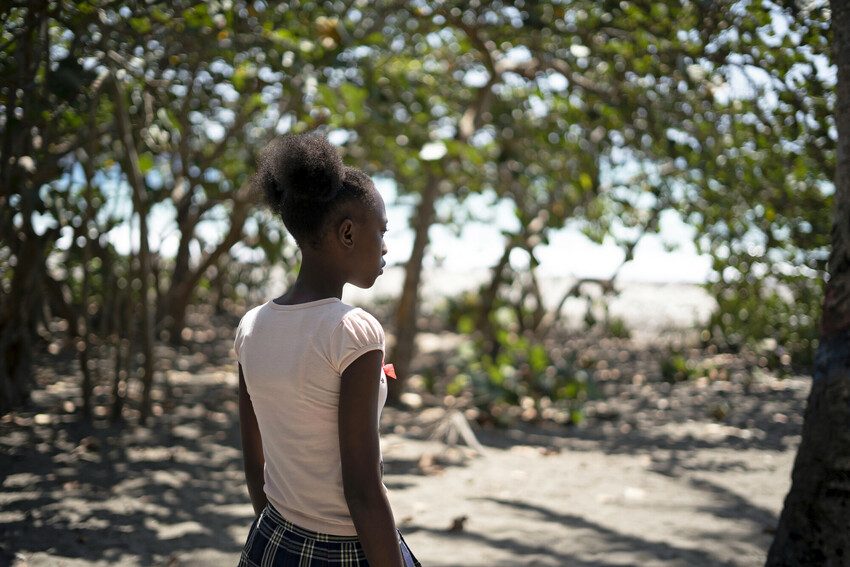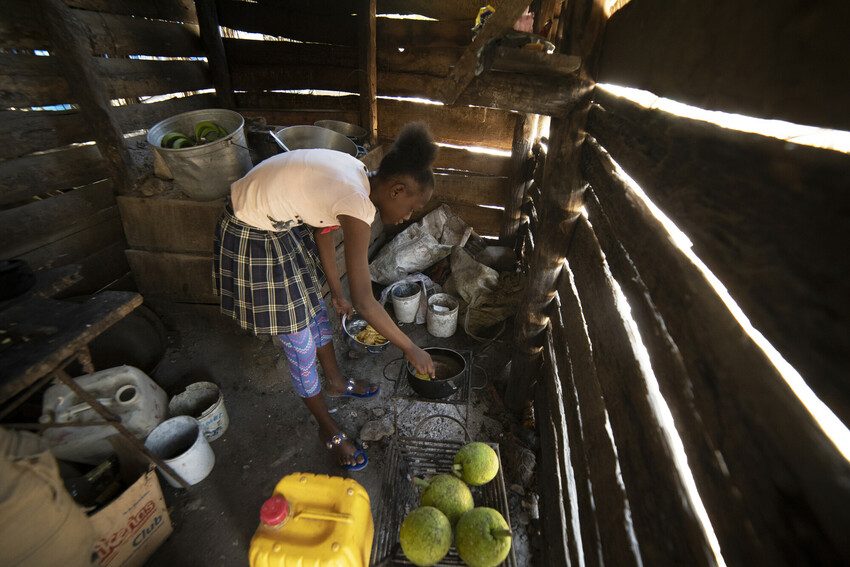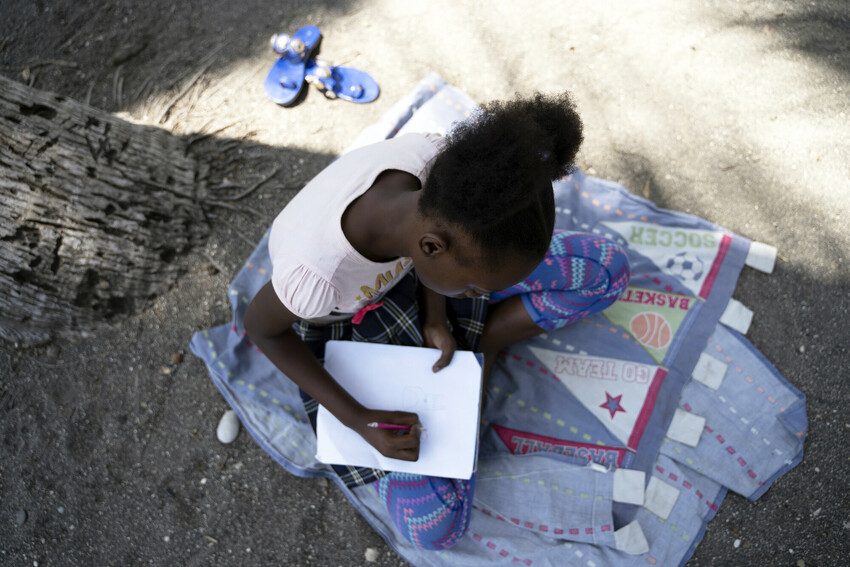Gang violence and hunger make life intolerable for Haiti’s girls
Barbara*, 13, is struggling to eat regularly and go to school due to violence and food shortages in her community. Her family is receiving life-saving assistance from Plan International.

For 13-year-old Barbara*, who lives with her father in Haiti, the fear of gang violence in her country is a constant reality. “What scares me the most is what is going on in Port-au-Prince,” she tells us. “Conflict between gangs is not something I want to happen in my city. The armed groups show no respect for human life.”
For Barbara’s father, Joel*, the threats posed by gangs carry a particularly painful sting, as 2 of Barbara’s half-brothers were kidnapped by gangs before being released in the capital Port-au-Prince. “It hurt a lot when I found out what had happened, yet we continued to live.”
Between January and March this year, gang-related violence has already led to over 530 people reportedly being killed, more than 300 injuries and 277 kidnappings, with the majority of incidents occurring around Port-au-Prince.
In order to escape the violence, many people are fleeing the city seeking safety in rural areas, but this brings additional problems in places where food is scarce.
“I think it can happen that girls my age get sick when they are hungry.”
Barbara
For children like Barbara, the conditions have become almost intolerable. “It’s not easy for me not to think about what is happening in the country because there are children who are being killed, abused and raped right now.”
School closures and hunger a deadly combination for Haitian children
Barbara says that even going to school has become difficult. The combination of acute hunger and gang violence has led to schools closing or classes being delayed.
“Schools had to close due to the insecurity in Port-au-Prince and the demonstrations,” she says, explaining that her school was closed from September to November last year because of safety issues.

Violence is also directly impacting food supplies. Gangs are effectively stopping traders from entering towns, demanding money to let them pass, meaning vendors are forced to increase the price of their goods. In many cases, families are now unable to afford to buy enough food.
Barbara says she tries to eat 2 meals a day but there are days when she doesn’t eat anything at all. “The gangs prevent my family and other families in the neighborhood from eating well. I feel stomach pain, but then I look for something to occupy my mind, like studying, to forget about the hunger,” she shares. “I think it can happen that girls my age get sick when they are hungry.”
Hunger and violence putting girls futures at risk
At present, Barbara and her father Joel live in a shack next to the beach that was given to them following the 2010 earthquake. Although they fear for their safety, it has at least provided them with a roof over their heads for the past 13 years. But Joel is worried it won’t survive the coming hurricane season.
They had to abandon their home once before because the sea threatened to inundate them. “We took what was most important if the sea level rose further. I was scared as I was asleep. I hurried to find my father when I woke up,” Barbara recalls.
Having lost her mother as a child, Barbara says her father Joel and siblings have always been there for her. Joel purchased her schoolbooks, but before Plan International started supporting the family, he was unable to pay her school fees.
Joel has since received financial assistance from Plan International to enable him to fund Barbara’s education so she can have a better future.

Plan International is responding to the emergency in Haiti by providing life-saving assistance to children and their families including cash transfers, increased nutrition and security awareness, and hygiene kits in response to disease outbreaks including cholera.
Despite the hardship she endures on a daily basis, Barbara is optimistic that things will get better. “My biggest dream is that I can finish school and then learn to sew, because I love sewing.”
As we leave, Barbara is already sitting with her notebook in a tree outside drawing dresses in the shadows – perhaps a first step towards making her dream come true.
*Names have been changed for security reasons.


